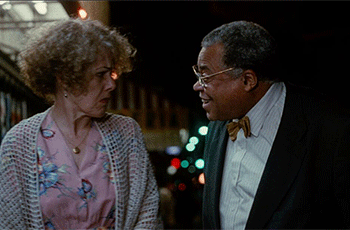
COMMEMORATING 30 YEARS OF TFF
09/30/2020My wife and I have a younger friend who dresses with unusual flair, and who often looks like she’s stepped out of the 40s. It’s a matter of neither nostalgia nor slavish recreation—it has to do with her own inner compass, the angles and lines she prefers. One evening, I started talking to her about 40s movies, assuming that she liked them. “No,” she said, with neither hesitation nor disdain, “I don’t. I really hate them. Everything is so phony.” Not too long ago, I took a fresh look at Leave Her to Heaven, as always lovingly and immaculately restored by Schawn Belston and his team at Fox. And it occurred to me, early on, that the film offers the very essence of what our friend finds so, to use a current term, “unrelatable.” Relatively early 3-strip Technicolor, which seems to glow from within. Every costume and production design and makeup and lighting choice made for a maximum sense of luxury and opulence, like the most elaborate magazine spread you’ve ever seen. Performances that are almost kabuki-like in their formality. A plot that seems could read as a textbook definition of the term “melodrama.” Unlike our friend and my wife, for that matter, I was brought up on Hollywood movies of the 30s and 40s, and I know their emotional registers and idioms and codes and thematic and cultural guideposts like I know the lines in my hand. It had been years since I’d seen the film, which was a favorite of my mother’s and which I’d always liked, but for the first stretch I was put off by the stiffness of Gene Tierney and Vincent Price and Cornel Wilde, and the astonishing level of fussiness in the placement of every piece of furniture and every forest vista in the frame. And then came the scene on the lake, one of the most famous in all of American cinema, which seemed even more chilling in every detail than it did on first viewing. From there, we were drawn into the spiraling force of the heroine’s madness, and what seemed fussy in the décor and stiff in the acting came alive and gathered force: every new detail enhanced the cold terror induced by Tierney’s Ellen, in the other characters and in the audience. As for our friend and others who have the same difficulty relating to older films, I hope that they find their way to making the adjustment, because they’re missing something precious and unrepeatable.
- Kent Jones
Follow us on Facebook, Instagram, and Twitter!
LEAVE HER TO HEAVEN (1945, d. John M. Stahl)
Restored by Academy Film Archive and Twentieth Century Fox with funding provided by The Film Foundation.
The Film Foundation
